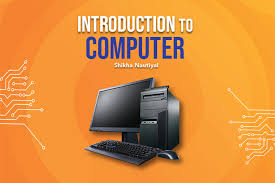
Welcome to the World of Computers
Computers have become an integral part of our daily lives, revolutionizing the way we work, communicate, and access information. An understanding of computers is essential in today’s digital age.
What is a Computer?
A computer is an electronic device that can perform various tasks based on instructions provided to it. It consists of hardware components such as the central processing unit (CPU), memory, storage devices, input devices (like keyboard and mouse), and output devices (such as monitor and printer).
Types of Computers
Computers come in various forms, including personal computers (desktops, laptops), servers, mainframes, supercomputers, and mobile devices like smartphones and tablets. Each type serves different purposes based on their computing power and capabilities.
How Computers Work
Computers process data through a series of steps known as the input-process-output cycle. Input devices gather data, the CPU processes it according to instructions, and output devices display or store the results. This cycle occurs millions of times per second.
Importance of Computer Literacy
Computer literacy is crucial in today’s digital world. It empowers individuals to navigate technology effectively, access online resources, communicate globally, and participate in the digital economy. Understanding computers opens up a world of opportunities.
The Future of Computing
The field of computing continues to evolve rapidly with advancements in artificial intelligence, quantum computing, cloud technology, and more. The future promises even greater integration of computers into every aspect of our lives.
5 Essential Tips for Beginners to Master Computer Basics
- Start by understanding the basic components of a computer such as the CPU, RAM, and hard drive.
- Learn how to navigate through the operating system to access programs and files.
- Familiarize yourself with common software applications like word processors and web browsers.
- Practice good digital hygiene by regularly updating your software and running antivirus scans.
- Explore online resources and tutorials to deepen your knowledge and skills in computer usage.
Start by understanding the basic components of a computer such as the CPU, RAM, and hard drive.
To begin your journey into the world of computers, it is essential to grasp the fundamental components that make up a computer system. Understanding key elements like the Central Processing Unit (CPU), Random Access Memory (RAM), and Hard Drive lays a strong foundation for further exploration into how computers function and interact with data. The CPU serves as the brain of the computer, executing instructions and processing data, while RAM provides temporary storage for active programs and data. The hard drive stores long-term data and files. By familiarizing yourself with these basic components, you can gain insight into the inner workings of a computer and enhance your overall computer literacy.
Learn how to navigate through the operating system to access programs and files.
To gain a solid understanding of computers, it is essential to learn how to navigate through the operating system effectively. By mastering the skills to access programs and files, users can optimize their productivity and efficiency while using a computer. Navigating through the operating system allows individuals to locate and launch applications, organize files, and manage their digital workspace with ease. This fundamental knowledge not only enhances user experience but also lays a strong foundation for further exploration and utilization of computer technology.
Familiarize yourself with common software applications like word processors and web browsers.
To gain a solid foundation in computer usage, it is essential to familiarize yourself with common software applications such as word processors and web browsers. Word processors, like Microsoft Word or Google Docs, are crucial for creating and editing documents efficiently. Web browsers, such as Chrome or Firefox, are essential for accessing information online. By becoming proficient in these software applications, you will enhance your computer skills and be better equipped to navigate the digital world effectively.
Practice good digital hygiene by regularly updating your software and running antivirus scans.
To ensure a smooth and secure computing experience, it is essential to practice good digital hygiene. One important tip is to regularly update your software and run antivirus scans on your computer. Software updates often contain patches for security vulnerabilities, helping to protect your system from potential threats. Running antivirus scans can help detect and remove malicious software that may harm your computer or compromise your data. By staying proactive with these practices, you can maintain a healthy and secure digital environment for your computing activities.
Explore online resources and tutorials to deepen your knowledge and skills in computer usage.
To deepen your knowledge and skills in computer usage, it is highly beneficial to explore online resources and tutorials. The internet offers a wealth of information on various aspects of computing, from basic concepts to advanced techniques. By taking advantage of these resources, you can enhance your understanding of computers, learn new skills, and stay updated on the latest developments in technology. Online tutorials provide step-by-step guidance and practical exercises to help you apply what you’ve learned. Embracing online learning can greatly expand your proficiency in using computers effectively and efficiently.
